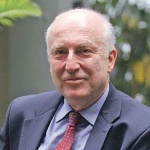British Academy
Rising Star Engagement Awards 2015
This scheme provides funding of up to £15,000 to distinguished early career researchers to engage in career development by organising interdisciplinary events for other early career researchers
- Award winner: Ana Aliverti
- Institution: University of Warwick
- Value: £12,810
Criminal adjudication in the age of migration: an international workshop
- Award winner: Gemma Elizabeth Derrick
- Institution: Brunel University London
- Value: £14,630
Establishing the international network of researchers for the promotion of qualitative and mixed methodological approaches in research policy and evaluation
- Award winner: Alan Gow
- Institution: Heriot-Watt University
- Value: £14,939
Rewrite the headlines: engaging young people in evaluating research in the media
National Institute for Health Research
Efficacy and Mechanism Evaluation Programme
- Award winner: Michael Robson
- Institution: King’s College London
- Value: £1,241,563
The PAVE Trial: paclitaxel-assisted balloon angioplasty of venous stenosis in haemodialysis access. A multi-centre double-blind randomised controlled trial in haemodialysis patients with a stenosis in a native arteriovenous fistula
Health Technology Assessment Programme
- Award winner: Ian Roberts
- Institution: London School of Hygiene and Tropical Medicine
- Value: £1,046,240
The CRASH-3 Trial: tranexamic acid for the treatment of significant traumatic brain injury
Leverhulme Trust
Major Research Fellowships
- Award winner: Michael Questier
- Institution: Queen Mary University of London
- Value: £100,290
Challoner unbound: treason, politics, religion and martyrdom c.1570-c.1745
- Award winner: Yolanda Plumley
- Institution: University of Exeter
- Value: £139,469
French music in the time of Jehan, Duke of Berry, c.1350-1415
Research Project Grants
Humanities
- Award winner: Jim Leary
- Institution: University of Reading
- Value: £264,705
Extending histories: from medieval mottes to prehistoric round mounds
In detail

Award winner: Edwin Williamson
Institution: University of Oxford
Value: £99,508
The making of Don Quixote: how Cervantes came to write the first modern novel
“Don Quixote is generally regarded as the first modern novel, but there is still no satisfactory explanation as to how its modernity came about: how a parody of chivalric romance, written by a 17th-century Spaniard, could have laid the foundations of modern fiction,” Edwin Williamson, King Alfonso XIII professor of Spanish studies at the University of Oxford, told Times Higher Education. “This project involves a critical study of Cervantes’ evolution as a writer during the last three decades of his life, with a focus on the process of composition of his masterpiece in the context of his other writings and the Spanish culture and society of his time. This will include a study of Cervantes’ reflections on the art of fiction as they develop diachronically through his writing, exploring issues of literary authority and expressive freedom.” Professor Williamson said that his principal aim is to produce a new interpretation of the novel. “I hope to demonstrate that Don Quixote owes its modernity to Cervantes’ genius in perceiving the creative power of the knight’s madness and in following its inherent logic through to its ultimate consequences, thereby impelling the work beyond the horizons of early modern Spain,” he explained.
Register to continue
Why register?
- Registration is free and only takes a moment
- Once registered, you can read 3 articles a month
- Sign up for our newsletter
Subscribe
Or subscribe for unlimited access to:
- Unlimited access to news, views, insights & reviews
- Digital editions
- Digital access to THE’s university and college rankings analysis
Already registered or a current subscriber?

